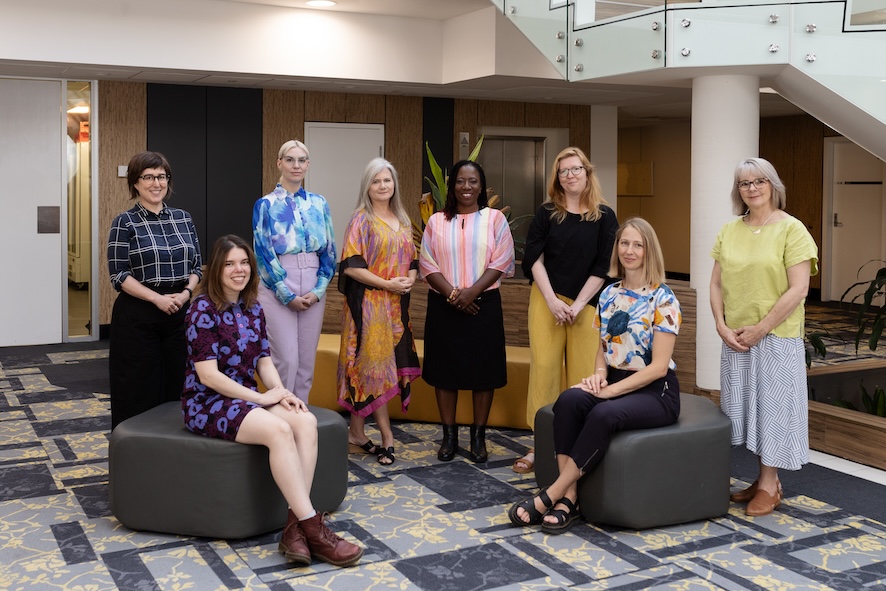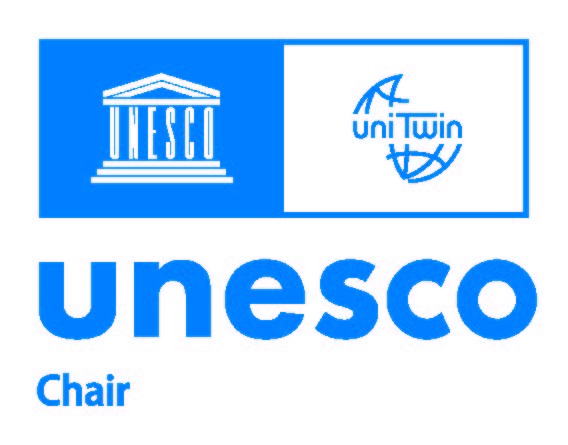
Gender Justice Hub - Mobilising Higher Education to help end gender-based violence
Gendered violence has been identified as a global pandemic with significant implications for educational access and participation. As an indication of the seriousness of this global pandemic, high-profile, international efforts have been put into place, often driven by the United Nations. Universities are challenged to understand and respond to the significance of gendered violence in the context of higher education. This has been an entirely under-researched area (Wagner and Magnusson, 2005) and there is little attention to this in HE policy terms, aside from more explicit attention to gendered violence on campus (see for example Human Rights Commission 2017).
Emerging directly from student recommendations and insights learned through research at the University of Newcastle, we are developing a gender justice hub (the Hub). The Hub is a site of research, advocacy, connection and capacity-building and aims to activate higher education’s role in prevention, response, intervention, recovery and healing. The Hub connects the University of Newcastle and the specialist DFSV organisations and professional fields that uplift the status of victim-survivors in the Hunter and Central Coast regions as central to developing the strategies needed for cultural change. The Hub is being developed as a model for Australian universities to play a vital role in addressing GBV in their regions – in close collaboration with local DFSV community service providers, staff, students and policy makers.
The Hub’s goals are to:
- Enable victim-survivors of gender-based violence to access, participate and thrive in and beyond higher education
- Ensure victim-survivors inform a transformed higher education sector that actively contributes to gender justice and challenging gender-based violence
- Prepare the next generation of professionals to understand and challenge gender injustice and its manifestation in gender-based violence
- Help universities and other professional organisations to become change-drivers in the fight against gender-based violence
- Recognise and leverage the knowledge, insight and capacity of student victim-survivors for societal and institutional transformation
Digital Hub coming soon
A site to share emerging research insights, resources and ways to connect
Publications and Media
Journals
Chapters and Essays
Burke PJ, Cocuzzoli, F, Coffey, J Gordon, R, Hardacre, S, Haro, A, Lumb, M, Parker, J, Shaw, S. (2025 Forthcoming) ‘The Global Pandemic of Gender-based Violence: Mobilising Higher Education for Social and Gender Justice’ in (Eds Douglas Bourn) ANGEL Conference on Learning for a Just, Peaceful and Sustainable World, Bloomsbury.
Burke, PJ, Stephanie H, Parker, J, Coffey, J, Cocuzzoli, F, Haro, A, Shaw, J. (2025 Forthcoming) ‘Gender-based Violence and Higher Education Access and Participation: Building a Transformative Agenda’ in (Eds M-P Moreau, K Hoskins) Education, Gender and Sexuality, Bloomsbury.
Reports
Professor Penny Jane Burke has shared insights from this project in national and international forums. See for example:
Transformative Reimagining: Sustainable Higher Education for Equity and Social Justice, Universities Australia Solutions Summit, Canberra 2024.
Open to Social Justice Transformation: What has higher education got to do with it? Open Education Global Conference, Brisbane 2024.
Professor Penny Jane Burke spoke with the Campus Review.
Professor Penny Jane Burke spoke with the Newcastle Herald.
University of Newcastle Newsroom article.
Professor Penny Jane Burke discussed the project at the Newcastle Youth Studies Seminar -
Professor Penny Jane Burke discussed the project on ABC Newcastle.

UON project team with Associate Professor Gifty Oforiwaa Gyamera during her visit to discuss research in Ghana, as part of the UNESCO Chair in Equity, Social Justice and Higher Education.
Project team
Penny Jane Burke
Penny Jane Burke is UNESCO Chair in Equity, Social Justice and Higher Education, Global Innovation Chair of Equity and Director of the Centre of Excellence in Equity in Higher Education at the University of Newcastle, Australia. Dedicated to developing methodological, theoretical and pedagogical frameworks that enable critical and feminist praxis, generating time-space for the reframing of equity in higher education, she has published widely across gender and social justice in higher education and lifelong learning.
Julia Coffey
Julia Coffey is Associate Professor in Sociology at the University of Newcastle, Australia. Her feminist sociological research focuses on gender, affect, youth and the body with particular interests in gendered body work practices. She has authored a number of books, most recently Everyday Embodiment: Rethinking Youth Body Image (2021, Palgrave Macmillan). Her other books include Body Work: Youth, Gender and Health (2016, Routledge), co-edited collection Learning Bodies: The Body in Youth and Childhood Studies (2016, Springer), co-authored Youth Sociology (2020, Red Globe Press).
Felicity Cocuzzoli
Felicity Cocuzzoli (Kennedy) is a visual artist and social scientist, who has worked with women, children and communities across government and not for profit roles for more than thirty years. A proud Wiradjuri descendant, Felicity’s work with the Centre of Excellence for Equity in Higher Education is centred on the application of creative methodologies for equity praxis. Felicity works with a range of academic and community partners across creative research and practice-based initiatives for women with lived experiences of gender-based violence, that are culturally-sensitive and trauma-informed.
Stephanie Hardacre
Stephanie Hardacre is a provisional psychologist and early career researcher based at the University of Newcastle, Australia. Her PhD focused on the social psychological dynamics of gender discrimination in the workplace and effective methods for social change. Stephanie has published in the area of gender equality, mental health, social media, solidarity, leadership, and social change. Her work has been included in former Prime Minister Julia Gillard’s book Women and Leadership, and in Harvard Kennedy School’s Women and Public Policy Program’s Gender Action Portal – a resource for decision-makers across sectors to translate research into action
Jean Parker
Dr Jean Parker is a research assistant in the Centre of Excellence for Equity in Higher Education (CEEHE) at the University of Newcastle. Her work centres on the political economy of higher education, neoliberalism and the Australian welfare state, and class and inequality. Jean has published on Australia’s policy response to the global financial crisis of 2008, financialisation and housing, and inequity in Australian higher education.
Adriana Haro
Adriana Haro is a Practice & Research Officer in the Centre of Excellence for Equity in Higher Education. Her doctoral research draws from queer, feminist and critical race theory to explore the experiences of young queer Latinx men with embodying and negotiating masculinities in Australia and its relation to race and identity. She is interested in using creative/visual methods and qualitative methods in research with young people.
Julia Shaw
Julia Shaw is the Research Coordinator at the Centre of Excellence for Equity in Higher Education. She has a degree in Art History and Theory and a Masters in Policy Studies.
Matt Lumb
Matt Lumb is Associate Director of the Centre of Excellence for Equity in Higher Education at the University of Newcastle in Australia. His PhD explored the unintended consequences of university outreach initiatives, and he is interested in how policy and program evaluation can be practiced to privilege marginalised and subjugated knowledges and knowledge holders. He works with colleagues to create and sustain critical and generative contexts with staff, students, and community members invested in reforming higher education.
Rhyall Gordon
Rhyall Gordon works in the role of Praxis Officer for the Centre of Excellence for Equity in Higher Education at the University of Newcastle. His role involves developing participatory evaluation initiatives to support the exchange between theory and practice in the context of equity projects within the University of Newcastle and with community partners.
Ernestina Mambono Nyaaba
Ernestina Mambono Nyaaba is a UNESCO Chair PhD Scholar in the Centre of Excellence for Equity in Higher Education. Her PhD project will build understandings of the impact of gender-based violence on higher education access in Ghana.
The University of Newcastle acknowledges the traditional custodians of the lands within our footprint areas: Awabakal, Darkinjung, Biripai, Worimi, Wonnarua, and Eora Nations. We also pay respect to the wisdom of our Elders past and present.
